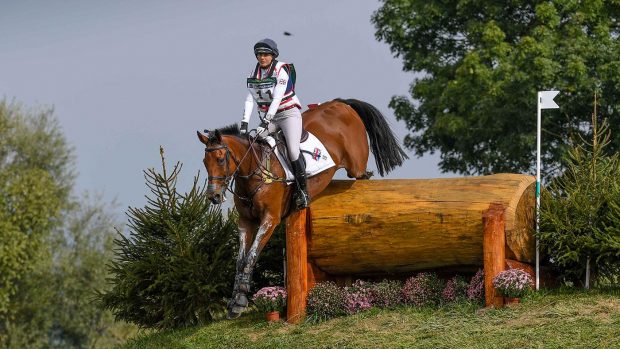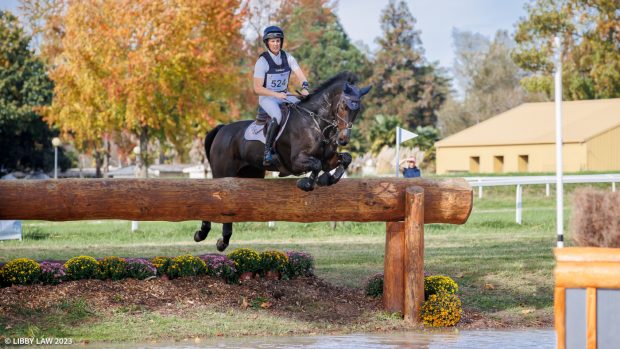Riding for an owner can be hugely rewarding and allows riders to have a string of horses and compete at levels that, perhaps, their own finances might not be able to afford. Of course, we do hear of these relationships on occasion turning sour, but there’s far more positive stories than there are negative ones, and in this feature we lift the lid on how to find the rides, how to make the relationships with owners work, and tips to help you prosper in your search for rides and owners.
Let’s start at the beginning with how riders find rides. Obviously this varies from rider to rider, and there’s no doubt that having a good competition record will help a lot.
“Owners tend to find me,” says 2019 Badminton Horse Trials winner Piggy French (pictured riding Castletown Clover). “I find that easier than having to go out and sell myself to someone. I find it a much easier starting point when someone comes up and says they’d like me to ride their horse rather than the other way around. It gives me confidence that I’m the rider they’ve chosen and then I can just get on with doing the best job I possibly can.”
Five-star event rider Simon Grieve’s rides have come to him in a similar way: “Most of the people that I ride for have come through work experiences, word of mouth or recommendations. Initially, more often than not, people asked me to ride horses because they were tricky or difficult.”
International dressage rider Abi Lyle is also an advocate for letting rides and owners find you: “All my partnerships have come about really organically and I like that”.
But even if owners find you and offer you the ride on their horse, there might be reasons why you say no.
“I don’t really have criteria but I do have to have a good relationship with them,” says Piggy. “You don’t need to be best friends but you have to work together to try and get the best from their horse.”
Simon has a similar view in that the relationship with the owner is really important.
“They have to be people who are willing to work with me and be as honest and straightforward as possible. I really enjoy producing horses and if I can do that with someone who is as passionate about it as I am, that doubles the enjoyment for me.”
When it comes to the horses, that can be a slightly different matter for some riders. Piggy keeps the bigger picture in mind when it comes to agreeing to take on a horse. She wants to enjoy riding and training the horse on a day-to-day basis, enjoy working with the owner, and think that the horse is worth the owner’s financial investment and her time investment as it’s not worth it for either party if the horse won’t be good enough in the end.
“This has definitely changed over the years,” says Piggy. “When I started, I would have ridden anything I could, but I now have the luxury of being more selective. My yard is pretty much full now, so if I want to take on a new horse I might have to move another one. That might only be turning one of our youngsters out in the field until a space becomes available again, but it forces me to make a decision rather than just having an empty stable to fill.”
“There’s no set criteria, but I do have to like the horse and owner,” explains Simon. “That doesn’t mean it has to be a complete superstar or totally straightforward, but a nice type and trier. In the beginning I rode anything and relished the challenge — if you don’t have financial backing or support and bills to pay then you have to to get started.”
Abi says that the right kind of horse tends to find her, but she’s also very open to any opportunities that would work for her and the owner: “I particularly like quirky, go-ey types and they seem to find me just fine, but I wouldn’t turn my nose up at anything really — sound and a bit capable are my criteria, that’s all!”
There’s more than the day-to-day owner relationship to consider with many riders having a really great social side to ownership too.
“The majority of the people I ride for have become good friends,” says Simon. “Some associations have been going for 15 years plus.”
“We don’t consider our owners as just customers,” explains Piggy. “I have personal relationships with them all. All of them were at our wedding last month and I wouldn’t have done it without them, they’re friends and a massive part of me being able to compete at the level that I do.”
As for how to nurture and keep the relationship between rider and owner positive, there are a few common themes. Communication is an essential and now with technology being what it is, it’s never been easier to keep people in the loop (in real time if you like!) using things like WhatsApp, FaceTime, etc. Honesty is also a massive factor in the rider/owner relationship and managing expectations too, both of which can be connected.
“All horses are different and progress at different rates,” says Abi. “Luckily, I’ve never felt pressured by an owner to perform, they’ve always been happy for the horses to progress at their own rate. I know some riders who expect too much too soon, maybe comparing their journey to another rider’s but you mustn’t do that. It can come across like you’re being negative about the horse and that’s not good for owner, horse or rider.”
Article continues below…
You might also be interested in:

Is a syndicate for you? H&H investigates…
There are lots of benefits to the syndicate system (if done correctly, of course), for both rider and participant

Subscribe to Horse & Hound this spring for great savings
“WhatsApp is brilliant for sending a really quick video or voice message so the owner can see or hear how their horse is doing,” says Simon. “Honesty is the best policy…no matter how bad things are you both must be honest about how things are going.”
“Eventing is a sport and in sport people like winning so that obviously helps, but there’s a lot of other things that go into it as well,” says Piggy. “From my team at home doing a great job looking after the horses to my husband Tom sending photos and videos of the horses at home and in competition and so on. Each individual owner also enjoys different things so you change what you do accordingly. The sport is expensive for owners so it’s our job as riders to give them the best return we can.”
For all the latest news analysis, competition reports, interviews, features and much more, don’t miss Horse & Hound magazine, on sale every Thursday.




